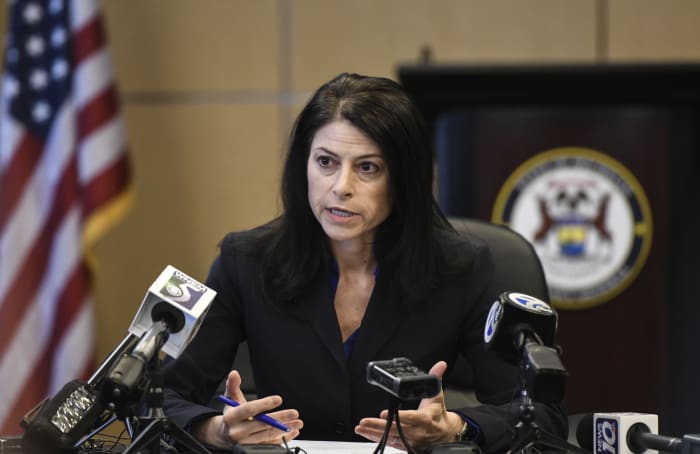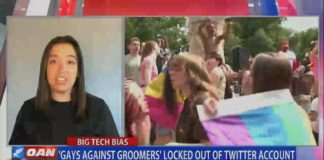
LANSING, Mich. – Michigan Attorney General Dana Nessel has joined a coalition challenging Florida’s “Don’t Say Gay” law.
The attorneys general said the law poses “a serious threat to LGBTQ+ students who are particularly vulnerable to the harms caused by discrimination.” The coalition is made up of 18 attorneys general.
The coalition has released an amicus brief that challenges Florida’s “Parental Rights in Education Act,” also known as the “Don’t Say Gay bill.” The law outlaws “classroom instruction” on sexual orientation or gender identity in kindergarten through grade three entirely.
The law’s central language reads: “Classroom instruction by school personnel or third parties on sexual orientation or gender identity may not occur in kindergarten through grade 3 or in a manner that is not age appropriate or developmentally appropriate for students in accordance with state standards.”
The law also requires the state education agency to write new classroom instructions for grades four through 12. Nessel said that because the law does not define key terms, like “classroom instruction,” Florida teachers are already censoring themselves out of fear. The law allows a parent to bring a civil claim against the school.
Florida Governor DeSantis and Florida Education Commissioner Richard Corcoran have dismissed concerns that the law is too broad. According to the Associated Press, Florida Education Association President Andrew Spar said the law is a political wedge for Republicans and that elementary schools do not teach those subjects.
Read more: What is law critics have dubbed ‘Don’t Say Gay’?
A group of students, parents, teachers and organizations challenged the Act in federal district court, seeking to prevent its enforcement and alleging that it violates the Equal Protection Clause and the First Amendment.
“One of the most important issues surrounding the education of our kids is making them feel seen, protected, and appreciated,” Nessel said. “That was not the motivation of this law. The intent and effect of this law is to exacerbate any feelings of otherness that LGBTQ+ students and LGBTQ+ teachers may hold, as well as isolate them from their peers. If the goal of this law had been to limit inappropriate content in classrooms, its language is much too broad and vague to do so in any meaningful way. I proudly stand with my colleagues in opposing this exclusionary law and I will do everything in my power to ensure that similar legislation does not come to Michigan.”
According to Nessel, the brief makes these two main points:
-
Florida’s law is unconstitutional. Although Florida claims the Act is intended to protect children and preserve parental choice, the amici states have curricula in place that allow for age-appropriate discussion of LGBTQ+ issues while respecting parental views on the topic.
-
The law is causing significant harms to students, parents, teachers, and other states. Non-inclusive educational environments have severe negative health impacts on LGBTQ+ students, resulting in increased rates of mental health disorders and suicide attempts. These harms extend to youth not just in Florida, but throughout the country.
Including Michigan, attorneys general from the following states joined the amicus brief: California, Colorado, Connecticut, the District of Columbia, Delaware, Hawaii, Illinois, Maine, Maryland, Massachusetts, Minnesota, Nevada, New Jersey, New York, Oregon, Rhode Island, and Washington.








